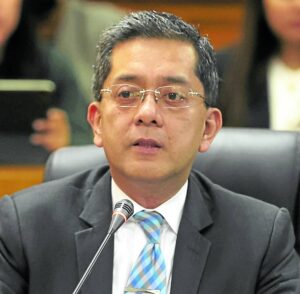A joint panel of the House of Representatives approved in principle on Wednesday a bill to legalize the medical use of cannabis or marijuana but without removing it from the country’s list of dangerous drugs.
During a hearing, the committees on dangerous drugs and on health agreed on a substitute measure—a consolidation of 10 House bills—that would make legal the use of medical marijuana. It also called for the creation of a Medical Cannabis Office (MCO) using an initial funding of P1 billion.
Surigao del Norte Rep. Robert Ace Barbers, dangerous drugs committee chair, clarified that the consolidated bill did not intend to delist cannabis as a dangerous drug under Republic Act No. 9165 or the Comprehensive Dangerous Drugs Act of 2002, but to allow its use to treat specific medical conditions.
He later ordered the finalization of a committee report to be approved and sent to the committee on rules, which was then expected to forward the bill to the appropriations committee, followed by its subsequent submission to the plenary for deliberation.
Legalize use, access
A technical working group chaired by Batangas Rep. Gerville Luistro and Malasakit at Bayanihan party list Rep. Anthony Rolando Golez Jr. reviewed and consolidated at least 10 bills pertaining to the legal use of marijuana.
According to Luistro, their main concerns in passing the measure were to legalize the use of medical cannabis, allow access only to qualified patients, and ensure safeguards and regulations were in place to avoid abuse.
Under the draft law, an MCO would be established to act as the “primary regulatory body for medical cannabis under the direct supervision and control of the Department of Health” which would work with the Dangerous Drugs Board and other related agencies for policy and programs coordination.
READ: DOH favors legalizing medical marijuana
The office, according to Luistro, would ensure that medical cannabis could only be accessed through authorized and licensed hospitals, clinics, drugstores and other medical facilities. Only accredited physicians would be authorized to prescribe it to qualified patients, in quantities that would not last for over a year.
The MCO would also make sure that medical marijuana was appropriately dispensed through an accredited licensed pharmacist in authorized hospitals and clinics, as well as issue guidelines on its cultivation, importation, production and distribution, including the conduct of marijuana research.


